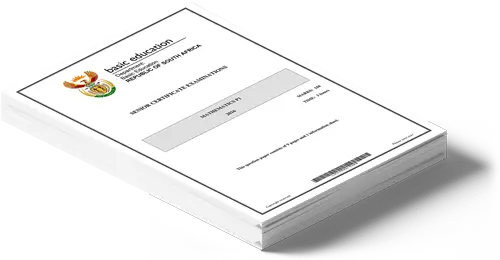Need More Study material
Check out our Additional Resources Section. We have a large collection of Videos and Study Guides available for you

Welcome to the MUSIC GRADE 12 Past Exam Papers Page. Here, you’ll find a comprehensive range of grade 12 Music past papers and memos, ranging from 2025 to as far back as 2008.
Our collection will help you prepare for your upcoming exams by familiarizing yourself with the exam format and identifying areas for improvement.
We have a vast collection of CAPS DBE NSC and Common Test Papers from National, Western Cape (WC), Kwa-Zulu Natal (KZN), Gauteng (GP), Eastern Cape (EC), Mpumalanga (MP), North West (NW) and Free State (FS).
Music Question Paper 1 and Paper 2, as well the Memorandum can easily be found on this page and We have it grouped by Year and Exam Semester.
View or Download our available content. Please share this Website with your school Colleagues, Friends and Teachers.
Please Support our Team
SA Exam Papers intends on being the Number ONE Resource, Go-To Website, for all your PAST EXAM PAPER CONTENT. Help us keep our Awesome Service running by Donating to our Worthy Cause.
More details on our HOME page on how to Donate.
Music as a subject in Grade 12 is not only a means of artistic expression but also a critical educational tool that fosters intellectual, emotional, and social development. For students at this pivotal stage, music education can enhance their academic abilities, provide emotional support, and prepare them for diverse career paths. Here’s why music is an essential component of the Grade 12 curriculum.
Music education has been linked to improved cognitive functions. Engaging with music helps develop critical thinking and problem-solving skills. It also enhances memory and the ability to process complex information. This cognitive development is beneficial not only in music-related activities but also in academic subjects that require analytical skills, such as mathematics and science.
Music provides a profound emotional outlet for students, offering a unique means of expression that can help manage stress and improve mental health. This emotional support is crucial for Grade 12 students as they navigate the challenges of their final school year and prepare for future uncertainties. Music can serve as a therapeutic tool, helping students to articulate feelings and experiences that might be difficult to express otherwise.
Participation in music classes and ensembles promotes teamwork and communication. Students learn to listen attentively, perform in sync with others, and support their peers, which are valuable skills in both personal and professional relationships. These collaborative experiences can help build a sense of community and belonging, which is important for emotional and social well-being.
Learning an instrument or mastering various musical pieces requires dedication and discipline. The effort to achieve proficiency can instill a strong work ethic and resilience in students—qualities that are applicable to all areas of life. The discipline learned through regular practice and performance prepares students for the demands of higher education and the workforce.
Music education opens up a range of career opportunities, from performing and teaching to roles in music production, composition, and therapy. Additionally, the skills developed through music education, such as creativity, performance, and sound technical knowledge, are increasingly valuable in industries beyond music, including technology and media.
Music is a reflection of cultural heritage and identity. Through studying music, students gain insights into different cultures and historical periods, enhancing their cultural awareness and sensitivity. This understanding is crucial in our globalized world, where respect and appreciation for diversity are key to personal and professional success.
Music can be a lifelong source of joy and enrichment. For many, the love of music begins in school and continues throughout their lives, whether they pursue it professionally or as a hobby. The appreciation for music cultivated in Grade 12 can lead to a lifetime of enjoyment and continuous learning.
Music education in Grade 12 plays a multifaceted role in student development, equipping them with cognitive, emotional, and social skills that are critical for personal and professional success. Beyond the immediate benefits, music encourages cultural appreciation and lifelong engagement with the arts, enriching students’ lives and broadening their horizons. In this way, music is not just a subject to be studied; it is an essential part of a well-rounded education.
Check out our Additional Resources Section. We have a large collection of Videos and Study Guides available for you
All content available on our Website is completely free! You are allowed to view or Download Any content however the Leaching of our Links are Strictly Prohibited! All Past Exam Papers are obtained from Valid Sources! Some content may contain errors.
All content hosted are free of Malware or Viruses. If you are found breaching our T&C’s, you will be blocked from our services. We reserve the right to take Further Action against those Breaching our T&C’s.
